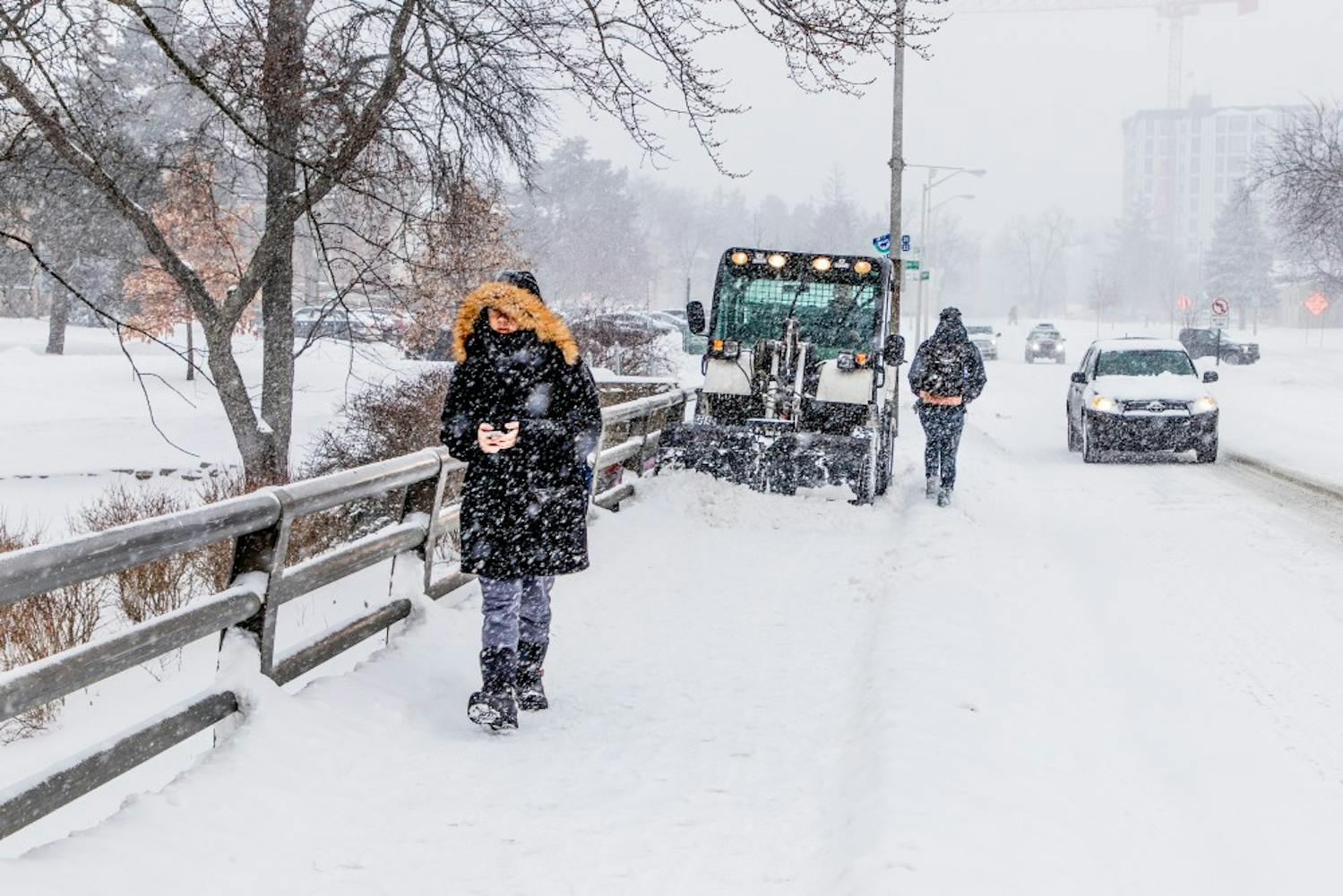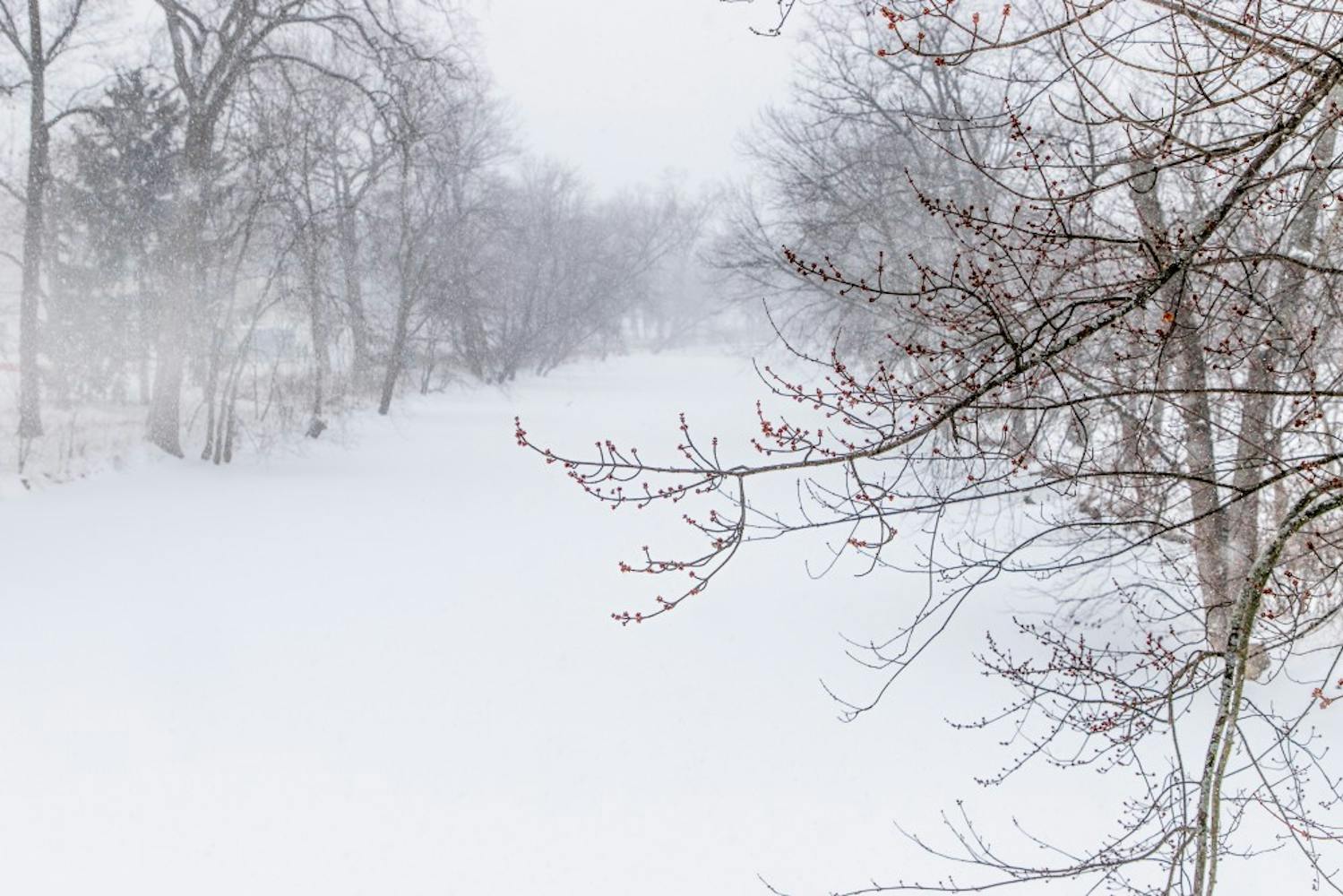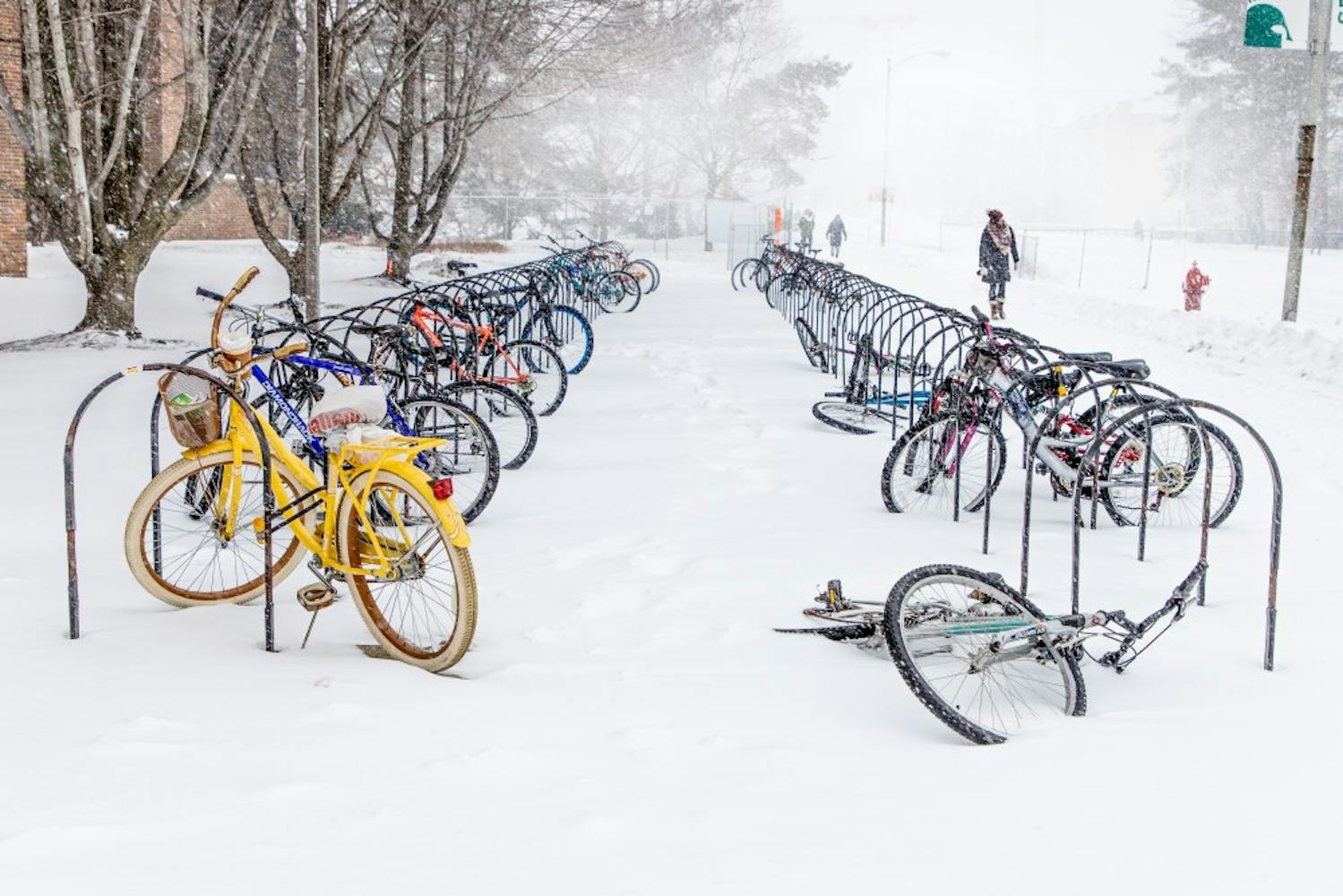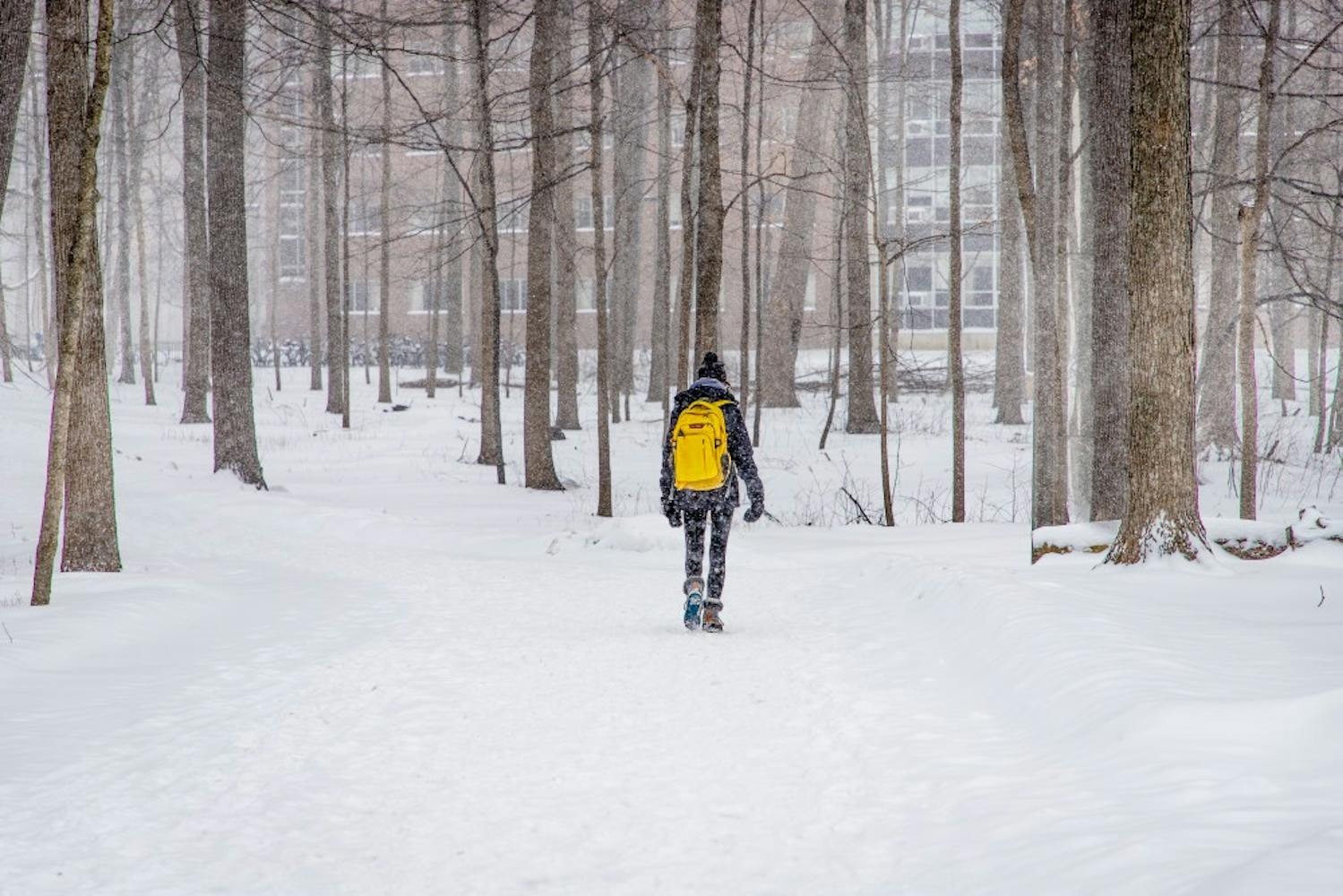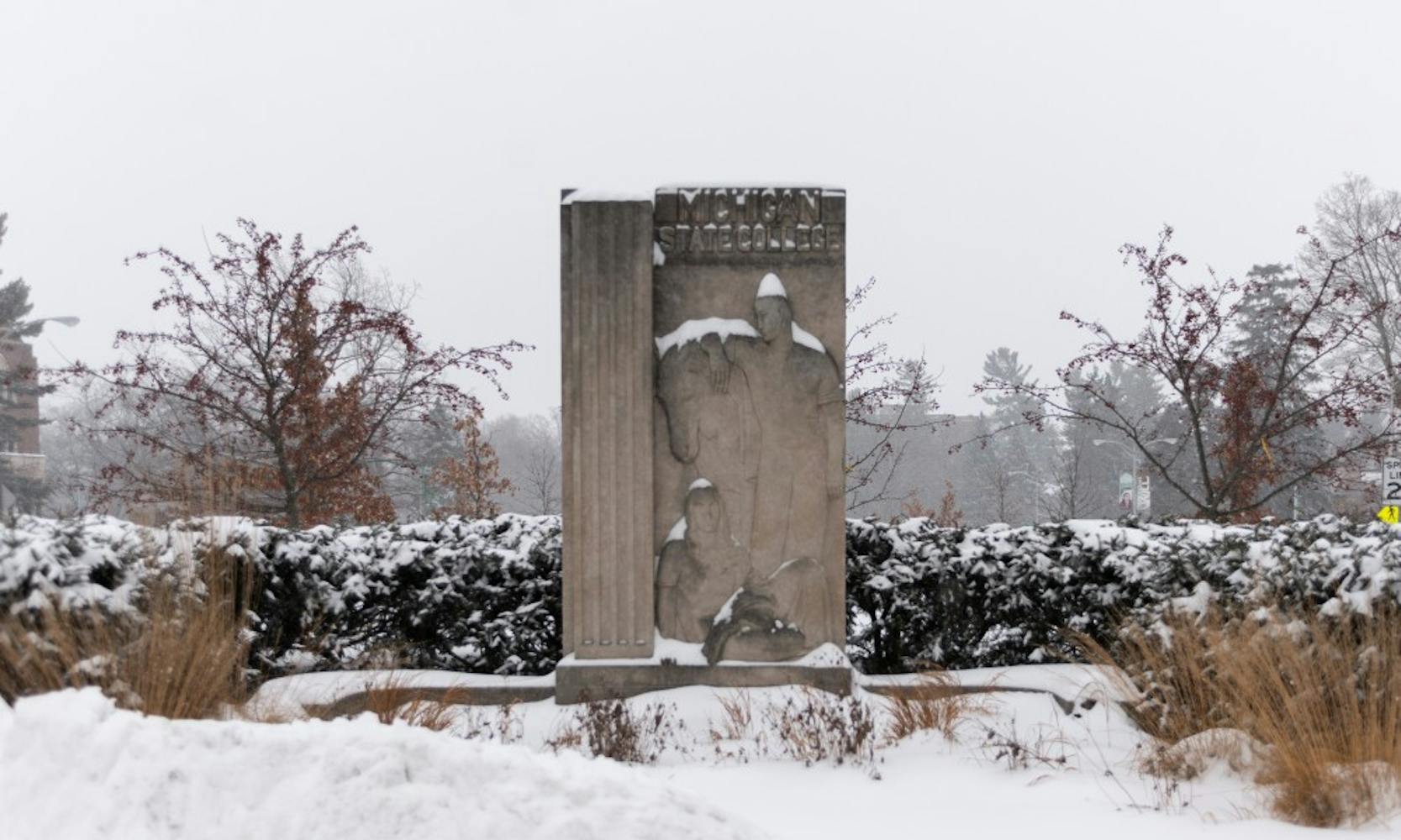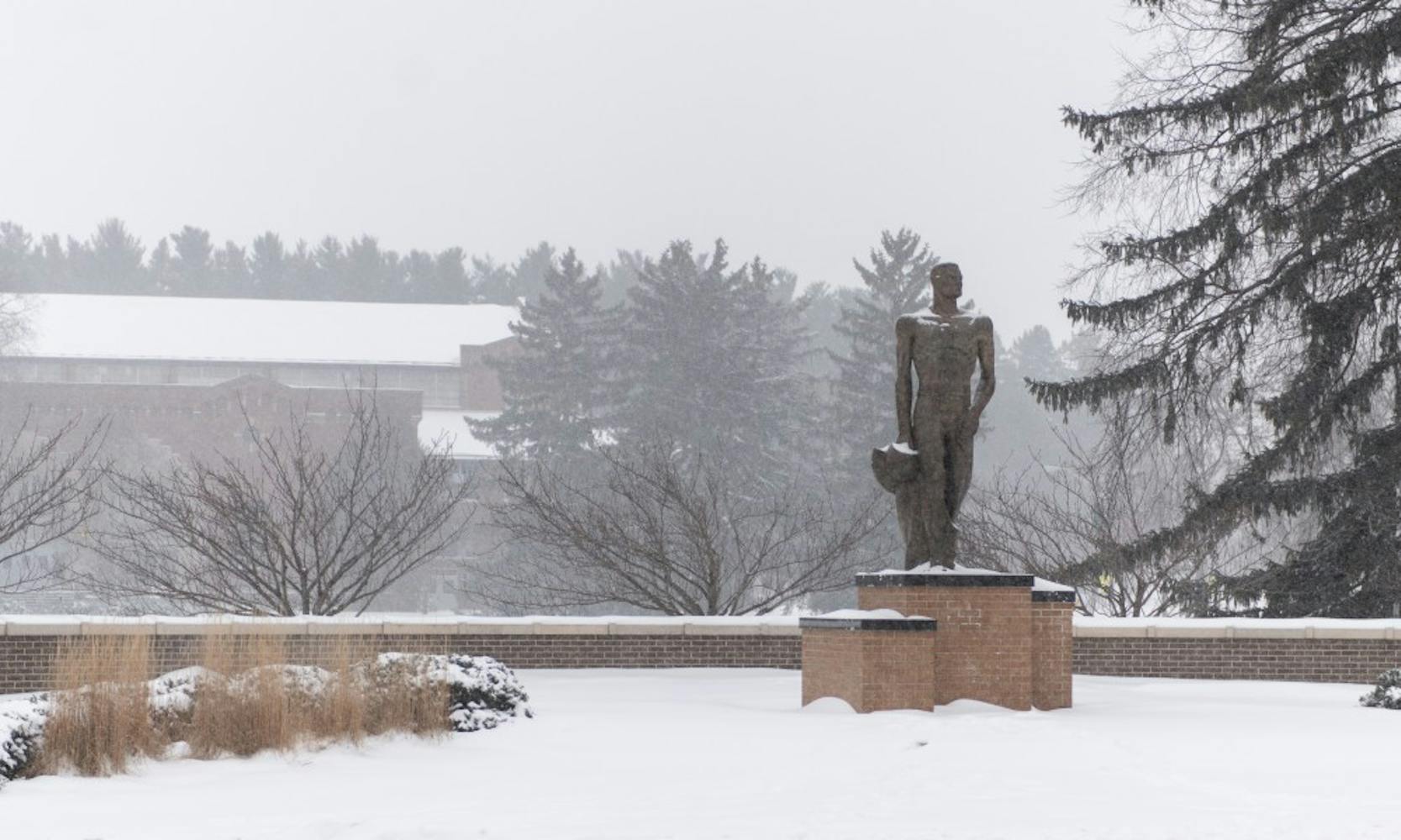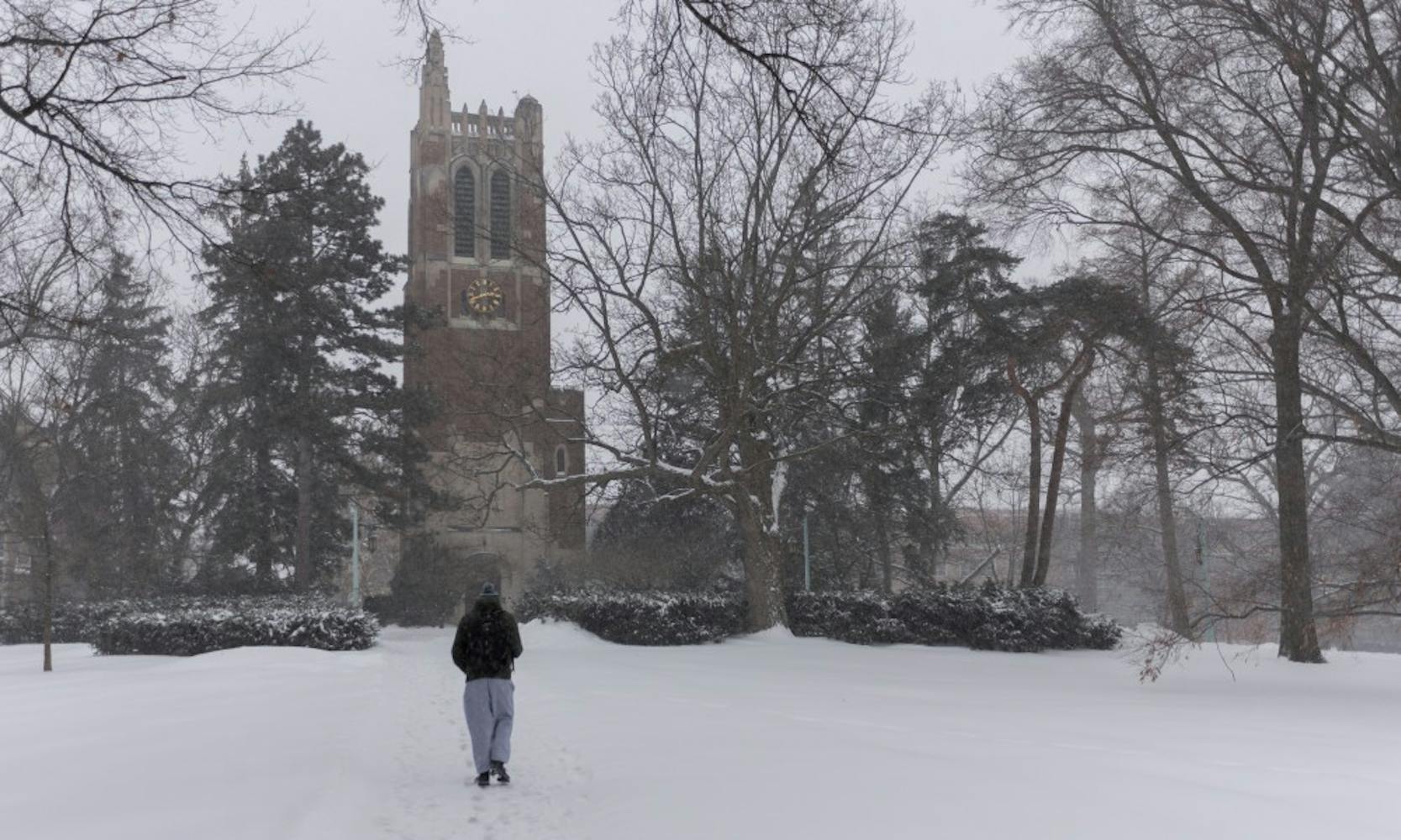One might be tempted to skip work or class when snow plummets from the sky and temperatures swing from 40 degrees to 10 below, but the workers at the East Lansing Police Department, or ELPD, and Department of Public Works, or DPW, work hard to make sure you can show up if you want.
The past four weeks have featured both a polar vortex — which shut Michigan State down for the seventh time in history — and a balmy high of 51 degrees the second week of February.
Every year, the ELPD, DPW, the fire department and the city manager's office connect for a winter operations meeting, creating a plan to help the city survive the storms ahead.
No two winters are ever the same in East Lansing, but the ELPD makes sure it's ready for anything, Deputy Chief Steve Gonzalez said.
“It gives us an opportunity prior to the cold weather hitting to sit down and touch base on what our cold weather operations are going to look like,” he said.
The meeting consists of plans for basic procedures when winter storms hit. Protocols are laid out for situations as common as when the police chief needs to call for the deployment of salt trucks, to extreme situations like the negative-30 degree wind chills experienced during the polar vortex.
This preparation is needed because calls for assistance arrive no matter the weather and every officer should be informed on how to respond properly, Gonzalez said.
“We’re potentially going to have a situation where it takes the officers just a little bit longer to get to whatever call they may be dispatched to, simply because driving conditions are not ideal,” he said.
Officers are taught how to drive in adverse conditions, whether that be rain, ice or snow. Clearing those hazards, however, is a task which falls to the DPW — one that can be particularly challenging when the temperatures dive below zero.
“With the deep cold, the salt is less effective or not effective,” DPW director Scott House said.
When temperatures are that cold, the department can either use additives to complement the salt's effects, or plow, which House said is a better method when many roads are in bad condition.
As temperatures rise again, the DPW has to deal with an ever-present issue plaguing Michigan roads — potholes.
“Whenever it goes from deep freeze with snow then a thaw and freeze, that creates the conditions for potholes,” House said.
Expansion and contraction of water in cracks and below the pavement causes the tire-shredding, suspension-jarring annoyances. This spring, the DPW will dispatch its workers to find and fill the asphalt menaces.
“Through the spring they’ll be focusing efforts on more permanent repairs and through the summer,” House said.
Both House and Gonzalez stressed that the best thing people can do during adverse winter weather is to dress warmly and to be mindful on the roads. They called on residents to be mindful of their neighbors, help each other out, and if they have the physical ability, shovel off their sidewalks.
Support student media!
Please consider donating to The State News and help fund the future of journalism.
Discussion
Share and discuss “City departments keeping residents safe during wild winter weather” on social media.
